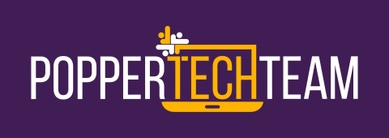Imagine losing access to critical business tools because of one overlooked email. This is exactly what happened to one of our clients, and the experience revealed some important lessons about customer service and IT management.
The Problem
Our company provides IT support to businesses. Recently, a client’s email and website for a secondary domain went down. The reason? An unpaid bill sent to a former employee who no longer worked there. As a result, the DNS hosting service lapsed, and all associated services stopped functioning.
While this wasn’t a business-critical emergency, it still required immediate attention. We stepped in to help resolve the issue, but what followed was a customer service nightmare.
The Roadblock
When we contacted the DNS hosting company, we identified ourselves as IT representatives of our client. Unfortunately, the hosting company refused to provide any information since we couldn’t answer their security questions. Even when the client’s COO got involved and explained that the account owner was no longer available, the company maintained its strict policy.
Their response? The only way to regain account access was to provide a notarized document requesting an account ownership change. Even after hours of escalation and pleading, we couldn’t get past this obstacle. It took several conversations just to confirm the service had been disabled due to nonpayment.
Why It Matters
While strict security policies are important—especially for critical infrastructure like DNS hosting—there should be a way for businesses to reclaim ownership of their accounts. In this case, our client’s alternate email was listed as a backup, yet the company’s rigid policy prevented them from using it to verify ownership.
As of writing this, the domain has been down for five days. We are still waiting for the notarized document to process. The delays and frustration could have been avoided with a more customer-centric approach.
Lessons Learned
This experience highlights the importance of having robust IT management practices and ensuring vendors prioritize customer needs. Here are some practical steps to prevent similar issues in your business:
Proactive IT Management
- Maintain Shared Access to Accounts
Ensure multiple people have access to critical accounts like DNS and web hosting. Assign secondary contacts and keep security information up-to-date. - Centralize Renewal Notifications
Create an email group (e.g., renewals@yourcompany.com) that includes multiple team members. Use this for all recurring contracts to prevent missed notifications. - Monitor Departed Employee Emails
For key employees responsible for external accounts, monitor their email accounts for 12 months after departure. - Monitor Secondary Domains
Even if a domain isn’t business-critical, include it in your IT monitoring processes to avoid disruptions.
Choosing Reliable Vendors
- Evaluate Vendor Policies
Before signing with a vendor, review their policies for resolving issues. Ensure they have clear, reasonable processes for account recovery and customer support. - Choose Reputable Companies
Work with vendors that understand local ownership laws and prioritize customer service. Avoid those with rigid policies that might drive away customers.
Reflection
Poor customer service experiences like this are a chance to evaluate your own policies. Ask yourself:
- Are your policies helping or hindering your customers?
- Do they make it easy for clients to resolve problems, or are they creating unnecessary frustration?
Final Thoughts
Customer service isn’t just about following policies—it’s about solving problems and building trust. By learning from experiences like this, we can create better systems, avoid unnecessary downtime, and ensure stronger client relationships.
How does your company handle situations like this? Have you ever faced a similar challenge? Share your story in the comments!
Need Help?
At Popper Tech Team, we help businesses avoid IT disasters like this with proactive management and expert support. Contact us today to ensure your critical infrastructure is secure and accessible when you need it most.

